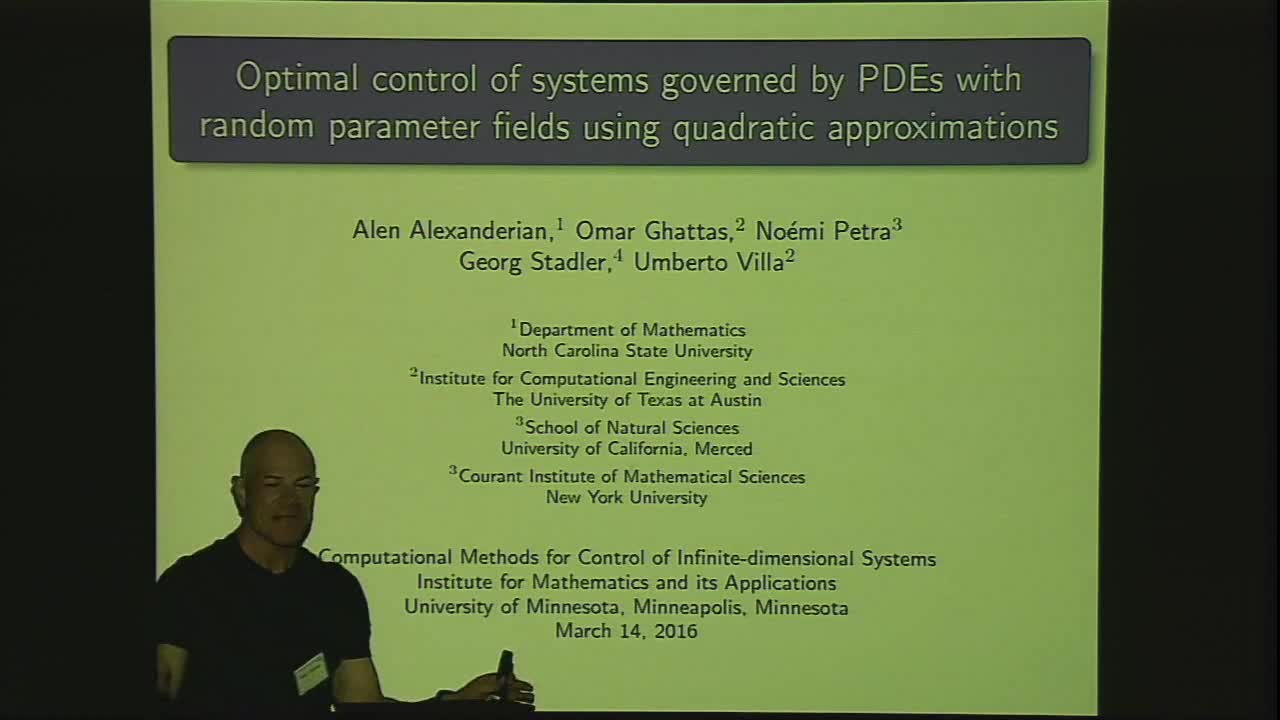Optimal control of systems governed by PDEs with random parameter fields using quadratic approximations
Presenter
March 14, 2016
Keywords:
- Optimization under uncertainty, PDE-constrained optimization, optimal control, risk-aversion, PDEs with random coefficients, Gaussian measure, Hessian, randomized trace estimators
MSC:
- 49J20
Abstract
We present methods for the optimal control of systems governed by partial differential equations with an infinite-dimensional uncertain parameter field. We consider an objective function that involves the mean
and variance of the control objective, leading to a risk-averse optimal control formulation. To make the optimal control problem computationally tractable, we employ a local quadratic approximation of the objective with respect to the uncertain parameter. This enables computation of the mean and variance of the control objective analytically. The resulting risk-averse optimization problem is formulated as a PDE constrained optimization problem with constraints given by the forward and adjoint PDEs for the first and second-order derivatives of the quantity of interest with respect to the uncertain parameter, and with an objective that involves the trace of a covariance-preconditioned Hessian (of the objective with respect to
the uncertain parameters) operator. A randomized trace estimator is used to make tractable the trace computation. Adjoint-based techniques are used to derive an expression for the infinite-dimensional gradient of the risk-averse objective function via the Lagrangian, leading to a quasi-Newton method for solution of the optimal control problem. A specific problem of optimal control of a linear elliptic PDE that describes flow of a fluid in a porous medium with uncertain permeability field is considered. We present numerical results to study the consequences of the local quadratic approximation and the efficiency of the method. Results indicate that the cost of an optimization iteration is independent of the discretized uncertain parameter dimension.
This work is joint with Alen Alexanderian (NCSU), Noemi Petra (UC Merced), and Georg Stadler (NYU)
